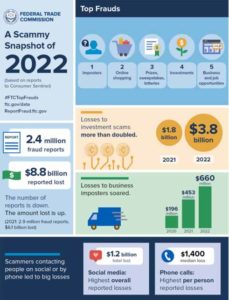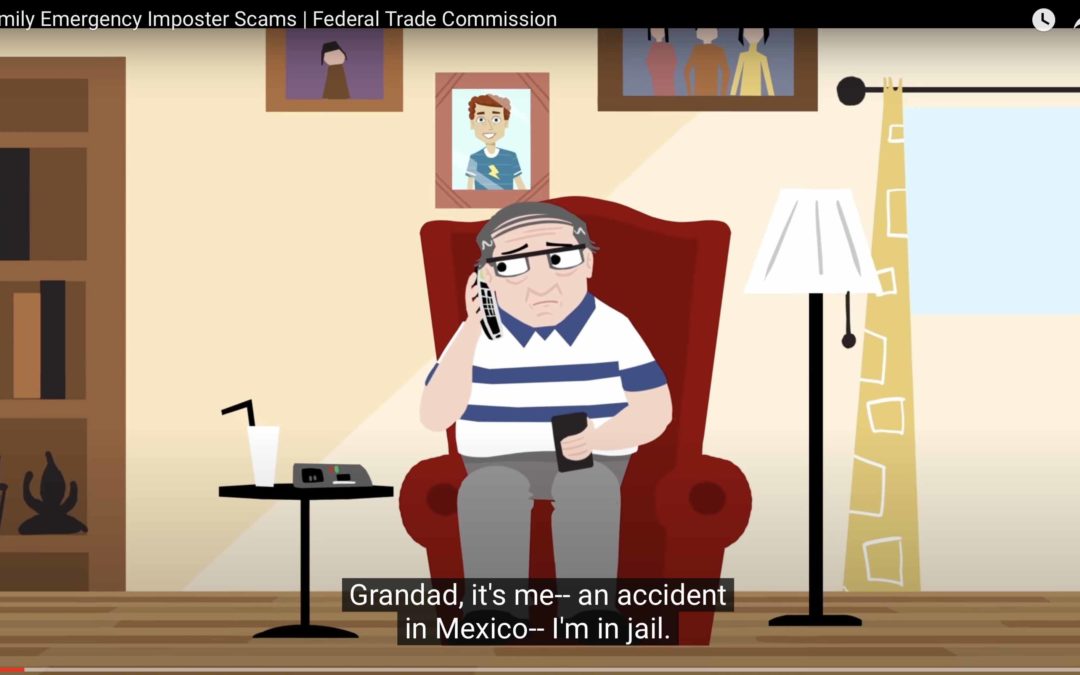Grandparents can be a soft touch, as senior members of the All Net Connect team can attest. Got grandkids? You’re eager to help them. So if they call to say they’re in trouble, it’s easy to be fooled—especially when scammers us artificial intelligence (AI). You might have seen how cybercriminals do it on “60 Minutes.”
The classic grandparent scam
Early versions of the scam have been around for decades. Long before AI was available, fraudsters figured out that grandparents might have trouble recognizing a voice over the phone. Here’s how a call might work:

- “Hi Grandpa! Is this you? It’s me! (A ploy to get more information, such as the name of an actual grandchild.)
- I’m in trouble! (Sounding scared and upset.)
- I’ve been (arrested, in an accident, taken to the hospital, some other disaster.).
- “I’m afraid to call my parents.” (Of course you are.)
- “I need a little money.” (“A little” can be thousands of dollars, but often a small enough amount to be reasonably certain it’s available.)
- “I need it right away!” (No time to think.)
- “Here’s the fastest way to send it. (See below.)
The AI version of the grandparent scam
Today, thanks to social media, it’s much easier to get the names of grandkids and other family details. Even worse, AI has made it easy to mimic the human voice. A scary study of the a widely used program called a ” text-to-speech language model” discovered the model could make a good copy of a voice from a 3-second audio clip. It could even preserve “the speaker’s emotion.” (Here’s the link, if you’re up for some tech-intensive reading.)
The bottom line is, you don’t have to be an expert to fake a voice. Anyone can do it.
Danger signs to watch for
Awareness is your first defense. When a “grandchild” calls, watch for these red flags:
- It’s an “emergency,” and there’s a story to justify the urgent need for speed.
- The caller asks for family information, in subtle ways.
- The request is for a specific amount of money. (This applies to many scams.)
- There are detailed instructions how to send the money—such as mobile apps, wire transfers, money orders, gift cards, social media platforms or even cryptocurrency.
- Follow-up phone calls might come from “lawyers,” “police,” or “doctors.”
Steps to avoid the grandparent scam
Simple safety measures start with skepticism. Here are seven steps you can take:
- Be skeptical of unknown phone numbers.
- Be skeptical of numbers that look familiar, too. Criminals can “spoof” numbers.
- Be skeptical of any request that demands speedy payment/
- Hang up and call the grandchild back, using a number you trust.
- Check with other family members, too, before sending money..
- Share this message with the whole family. (Watch and share the Federal Trade Commission video about the grandparent scam.)
- Report scams to law enforcement. The FTC explains how to do it.
The new, “improved,” AI-driven grandparent scam is part of an increasing number of telephone, email and internet scams. In 2022, about 2.4 million people reported scams to the FTC. Americans lost $8.8 billion to fraud last year, up 30 percent from the previous year. Imposter scams, like the grandparents scam, led the pack. That’s why All Net Connect recommends creating a culture of cybersecurity, not just in the workplace but at home.

